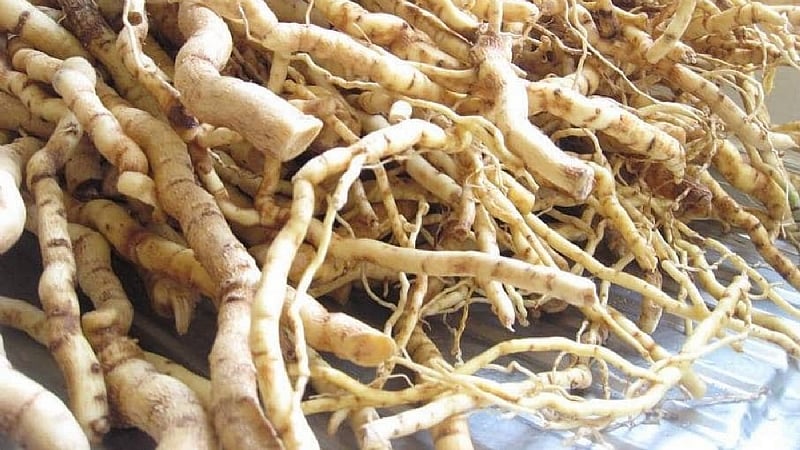Mondia whitei, a climbing plant indigenous to sub-Saharan Africa, holds profound cultural and medicinal significance across the continent. Known by various local names such as “Mulondo” in Uganda and “Mkombe” in Kenya, this plant, with its vanilla-scented roots and reddish stems, has been a cornerstone of traditional medicine for centuries, particularly revered for its purported aphrodisiac properties and its contribution to men’s health. Despite its historical relevance and increasing scientific validation, Mondia whitei remains largely underutilized and overlooked within mainstream healthcare and agricultural practices. This oversight presents a significant missed opportunity, considering the plant’s potential to contribute to both individual well-being and economic development across Africa.
The ethnobotanical significance of Mondia whitei is deeply ingrained in numerous African cultures. Traditionally, virtually every part of the plant has been utilized for medicinal purposes, with the roots holding particular esteem. Chewing the root is believed to enhance libido, alleviate fatigue, improve digestion, and address stomach ailments. Traditional healers across Tanzania and Uganda have long prescribed Mondia whitei decoctions for impotence, low libido, infertility, and as a general tonic for vitality. Certain tribes even employ the plant to manage stress and mild anxiety, attributing calming properties to its composition. This rich history of traditional use highlights the plant’s ingrained role in African healthcare systems and provides a compelling foundation for further scientific investigation and integration into modern medical practices.
Scientific research has begun to corroborate many of the traditional uses attributed to Mondia whitei. The plant’s roots have been found to contain a wealth of bioactive compounds, including saponins, flavonoids, coumarins, and essential oils, each contributing to its diverse therapeutic effects. Studies indicate that Mondia whitei can increase testosterone levels, improve sperm motility and count, and function as a mild anxiolytic. The plant’s rich mineral content, including zinc, magnesium, and iron, further supports its role in promoting male reproductive health. Beyond its impact on reproductive health, the antioxidant properties of Mondia whitei suggest potential benefits for cardiovascular health, inflammation reduction, and immune system support. This combination of traditional use and scientific validation positions Mondia whitei as a promising candidate for further research and development as a holistic health enhancer.
Within the field of naturopathy, Mondia whitei is gaining recognition as a versatile herbal remedy. It is increasingly utilized as a libido and fertility tonic for both men and women, a treatment for digestive issues such as bloating and indigestion, a remedy for stress and fatigue, and a nutritional supplement due to its micronutrient content. This expanding application within naturopathic practices underscores the plant’s potential to contribute to a wider range of health concerns and further supports the need for rigorous scientific investigation to fully understand its therapeutic potential.
Beyond its health benefits, Mondia whitei presents significant economic opportunities. The burgeoning global interest in herbal and natural health products, particularly those addressing aphrodisiac and fertility concerns, positions Mondia whitei at the cusp of a lucrative market. In East Africa, the plant is already being cultivated commercially and exported to international markets. Ghana, and indeed the entire West African region, could benefit significantly from investing in Mondia whitei cultivation, processing, and product development. Value-added products such as herbal teas, capsules, tonics, and functional foods could be developed, leveraging the plant’s unique properties. Furthermore, strategic branding could integrate Mondia whitei into the tourism and wellness industries, mirroring the successful models of ginseng in Asia and maca in Peru.
Despite its potential, Mondia whitei faces considerable challenges. Overharvesting, driven by the demand for its roots, poses a significant threat to the plant’s sustainability. Deforestation and habitat loss further exacerbate this issue. Moreover, a lack of awareness among policymakers and healthcare practitioners regarding the plant’s value hinders its integration into mainstream practices. Without a concerted effort towards conservation and sustainable cultivation, Mondia whitei risks becoming endangered, as has already been observed in parts of East Africa. Addressing these challenges requires a multi-pronged approach, including training farmers in sustainable harvesting and cultivation techniques, educating the public about the plant’s value, conducting further scientific research to validate traditional claims and explore new applications, and developing supportive policies that prioritize its conservation and development. By embracing these strategies, we can unlock the full potential of Mondia whitei, contributing to both improved health outcomes and economic growth across Africa.


